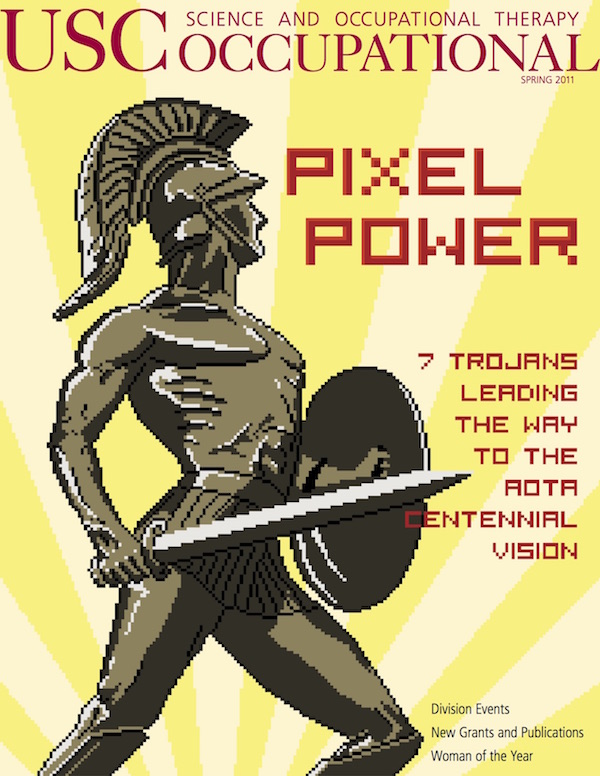Squeezing More Into a Busy Day
While many people harbor a secret hope to magically stretch their daily schedules to fit in more exercise, reading or even napping, occupational therapist Camille Dieterle (OTD ’08, MA ’07), has ideas for making such wishes come true.
By Laura Sturza
At a recent Women in Management breakfast led by Dieterle, Director of the USC Occupational Therapy Faculty Practice, a group of USC staff and faculty members learned strategies for incorporating more of their favorite activities in their busy lives.
“Our culture is really good at pushing us to be ‘on’ all the time,” Dieterle said. But in order to be even more productive, individuals actually need to take more breaks and include daily activities that energize them, she explained. “Having a sense of control about how we spend our time can lower stress levels.”
Different individuals find different activities restorative or depleting, and it is up to each person to identify how certain activities affect them, Dieterle said. Since everyone occasionally must do things they might find draining, she encouraged participants to schedule restorative activities on their calendars and planners.
Workshop participants offered examples of small things they do in order to stay engaged, including walking around the block, talking with a colleague and the all-important act of eating chocolate. Others suggested longer, after-work breaks such as receiving a massage, going to Disneyland or “watching a movie my kids don’t like,” as one participant said.
The workshop also focused on multitasking. Dieterle cited research studies that show how the growing volume of media competing for our attention can create symptoms that mimic ADD, even in individuals who do not have the disorder. One study from the University of London showed that workers distracted by e-mail and phone calls suffered a drop in IQ more than twice that of marijuana smokers.
“The multitasking information is alarming,” said Women in Management member Ginger Mayerson. Though it was Mayerson’s day off, she attended the breakfast because she wanted to learn more about time management skills. “I need to reevaluate how I spend my time,” she said.
Another time management concept addressed by Dieterle is time deepening, an alternative to multitasking. Time deepening refers to simultaneously performing two or more activities that do not compete for the same kind of cognitive attention such as driving while listening to books on tape. Time deepening is one of the ways that a person’s mind can relax. We need “space to wander in our mind in order to develop new and often better ideas,” Dieterle said.
Participants offered their own ideas for creating more focused time for themselves and ways to have a more healthy relationship with time. Suggestions included leaving the phone off for a period of time or only answering e-mails during certain parts of the day.
“I have a little list of things I need to unlearn, such as doing too many things at once,” Women in Management member Stacy Patterson said. “Now I feel empowered to do things differently.”
⋯






